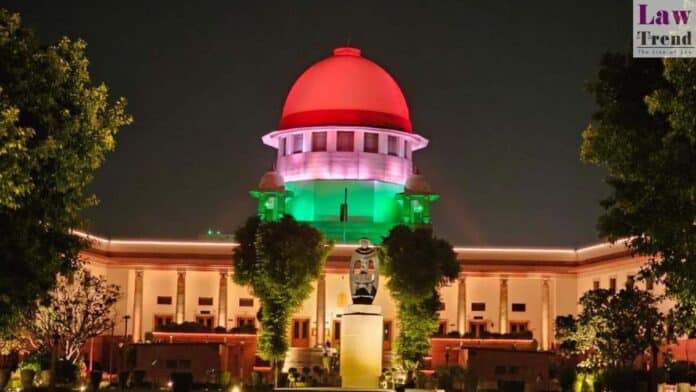The Supreme Court on Tuesday adjourned to November the hearing in its suo motu proceedings related to the rape and murder of a postgraduate trainee doctor at the state-run RG Kar Medical College and Hospital in Kolkata, citing its engagement in a part-heard matter.
The brutal crime took place on August 9 last year, when the body of the young doctor was found inside the hospital’s seminar room. The incident sparked massive protests and nationwide outrage, with medical professionals and civil society demanding accountability and systemic reforms for the safety of healthcare workers.
The next day, Kolkata police arrested Sanjay Roy, a civic volunteer, as the accused. Dissatisfied with the investigation, the Calcutta High Court transferred the probe to the CBI on August 13, 2024. The Supreme Court later took suo motu cognisance of the case on August 19, assuming oversight. Roy was chargesheeted by the CBI in October 2024. On January 20 this year, a Kolkata trial court convicted Roy and sentenced him to “life imprisonment till death.”
A bench of Justices M M Sundresh and Satish Chandra Sharma deferred the hearing to November. During the brief proceedings, senior advocate Karuna Nandy, appearing for the Association of Junior and Senior Doctors, highlighted that doctors who had participated in peaceful protests were being summoned for police interrogation. She urged the bench to fix an early date for hearing in view of these developments.
Even after the primary conviction, the Supreme Court continues to monitor several ancillary issues related to the case, including the regularisation of the doctors’ unauthorised absence during the protest period.
Earlier, on August 20, 2024, the Court had constituted a National Task Force (NTF) to draft a safety protocol for medical professionals. In its November 2024 report, submitted as part of the Centre’s affidavit, the NTF stated that there was no need for a separate central law to address violence against healthcare professionals. It noted that existing state laws, along with provisions under the Bharatiya Nyaya Sanhita, 2023, were sufficient to handle both minor and serious offences. The report recorded that 24 states had enacted specific laws defining “healthcare institutions” and “medical professionals” to address such violence.




